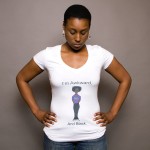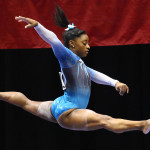by Carlene Ervin
On August 28th, Beyoncé slayed Lemonade Live—I mean, her VMAs performance.
In 2014, when Beyoncé received the VMA’s Michael Jackson Video Vanguard, she delivered a stunning 16-minute medley of her self-titled album Beyoncé. This year, she employed the same framework to deliver a stunning, on-stage performance of Lemonade distinct from her Formation World Tour. After being introduced by Serena Williams, the iconic singer appeared in a storm of smoke and rapidly flashing lights. Spoken word poetry written by Warsan Shire and performed by Beyoncé echoed out to the crowd as the opening notes of “Pray You Catch Me” energized the crowd.
Black women dressed in white, appearing seemingly out of thin air, then joined Beyoncé onstage. The angelic figures, with their fragile movements, seemed to drop into a pool of red. The strong imagery of Beyoncé’s dancers and more beautiful poetry served as transitions into some of her most notable songs on “Lemonade,” such as “Hold Up,” “Sorry,” “Don’t Hurt Yourself,” and “Formation.”
Before hitting the VMA stage, Beyoncé arrived on the white carpet with members of the cast of Lemonade and her daughter, Blue Ivy Carter. It should have been an amazing opportunity to watch a young Black girl see her mother shine, yet the entrance ushered in a tide of racist backlash as people took to Twitter to degrade four-year-old Blue Ivy’s appearance. The hate that people are ready to dish out to a young Black girl is quite scary.
What’s worse is that Twitter users insisted on using another young Black girl—North West, daughter of Kim Kardashian-West and Kanye West, a “multiracial” child with lighter skin—as a tool to shame Blue Ivy. She has been deemed “cuter” because she has lighter skin and nice curly hair where Blue receives criticism for having classically Black features such as her big nose, her thick lips, and her Afro. This is the same colorism that, a week later, reared its ugly head in West’s casting call for his Season 4 fashion line which requested “multiracial women only” to audition. Though “multiracial” takes many shades and shapes, the same features that make North “cuter” in the eyes of the media—light skin, spiral curly hair, and light eyes—seem to be what West is looking for in auditions. What does his call mean for girls like Blue Ivy, who will grow up being told their Blackness is unattractive?
While Lemonade is not perfect in its representation—for example, it lacks representation of different body types and of LGBTQ+ people— it begins to approach some of these issues of colorism and misogynoir. Lemonade and “Formation” displayed different representations of Black women. The pain, the joy, the simple audacity to be Black in an America that praises whiteness showed through in the track and the visuals. In “Hold Up,” Beyoncé served feminine looks in her flawless yellow dress while still being able taking her frustrations out on the world with a bat named Hot Sauce. She did not hold back, she was unapologetic, and she was not respectable, especially when “nigga nah!” passed through her lips. The kinship of Black womanhood was celebrated while acknowledging that the media’s constant whitewashing.
Beyoncé’s VMA performance was absolutely a breath of fresh air. After the online abuse of Blue Ivy, Beyoncé performance of “Formation” was powerful. Through her craft, she declares love for her Blackness, her daughter’s Blackness, her husband’s Blackness, and even my own, reminding us that we are great.



